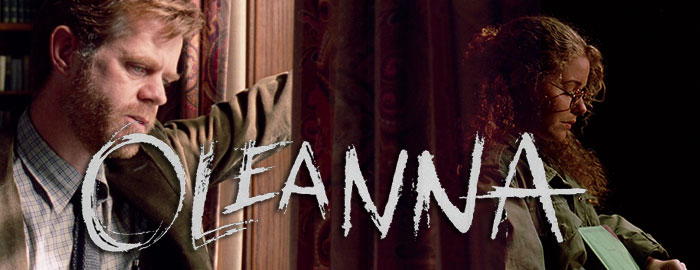
Color, 1994, 89 mins. 55 secs.
Directed by David Mamet
Starring William H. Macy, Debra Eisenstadt
Indicator (Blu-ray) (UK R0 HD) / WS (1.66:1) (16:9), MGM (DVD) (US R1 NTSC) / WS (1.66:1)

Color, 1994, 89 mins. 55 secs.
Directed by David Mamet
Starring William H. Macy, Debra Eisenstadt
Indicator (Blu-ray) (UK R0 HD) / WS (1.66:1) (16:9), MGM (DVD) (US R1 NTSC) / WS (1.66:1)
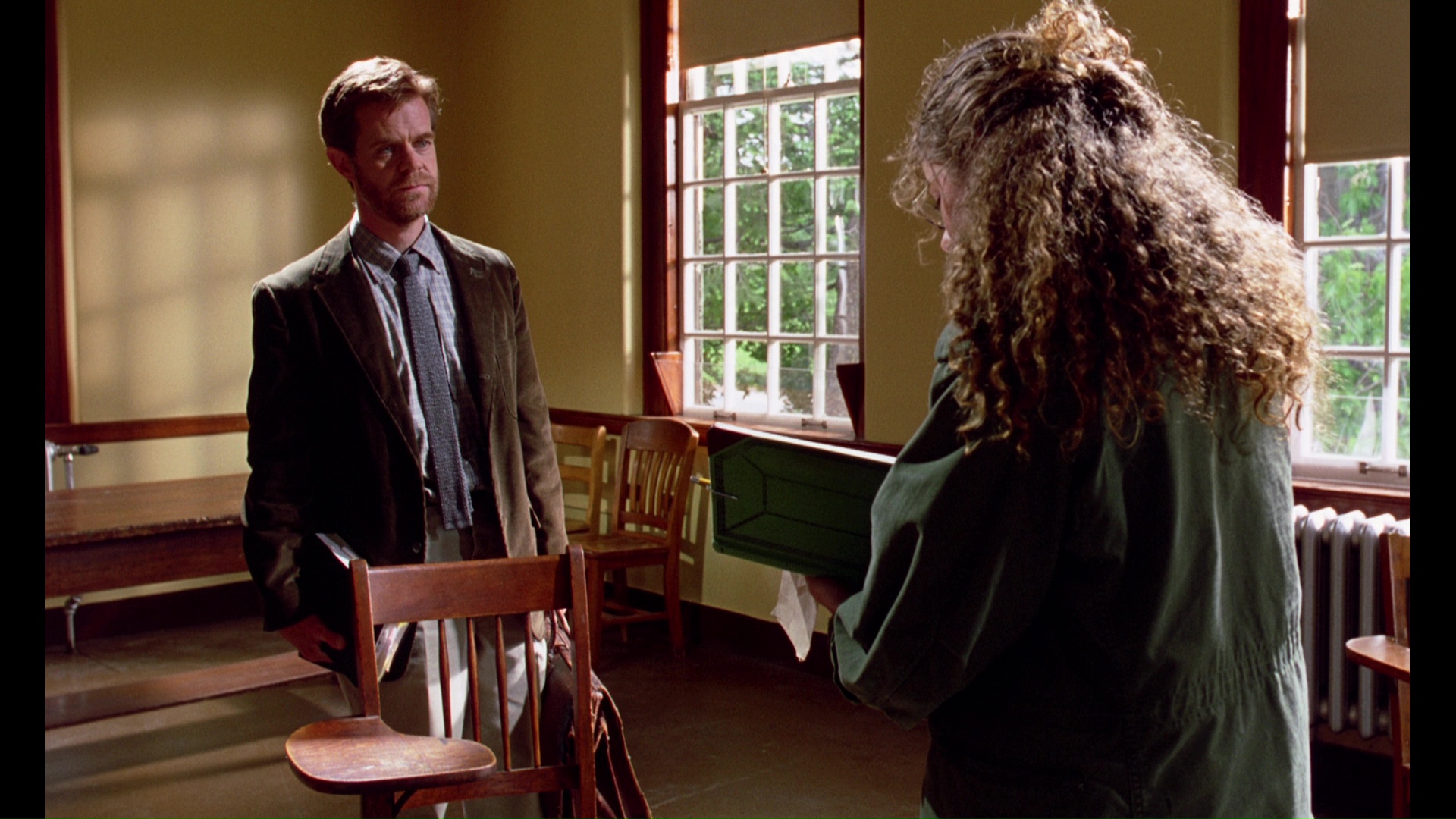 firebomb of a play
firebomb of a play 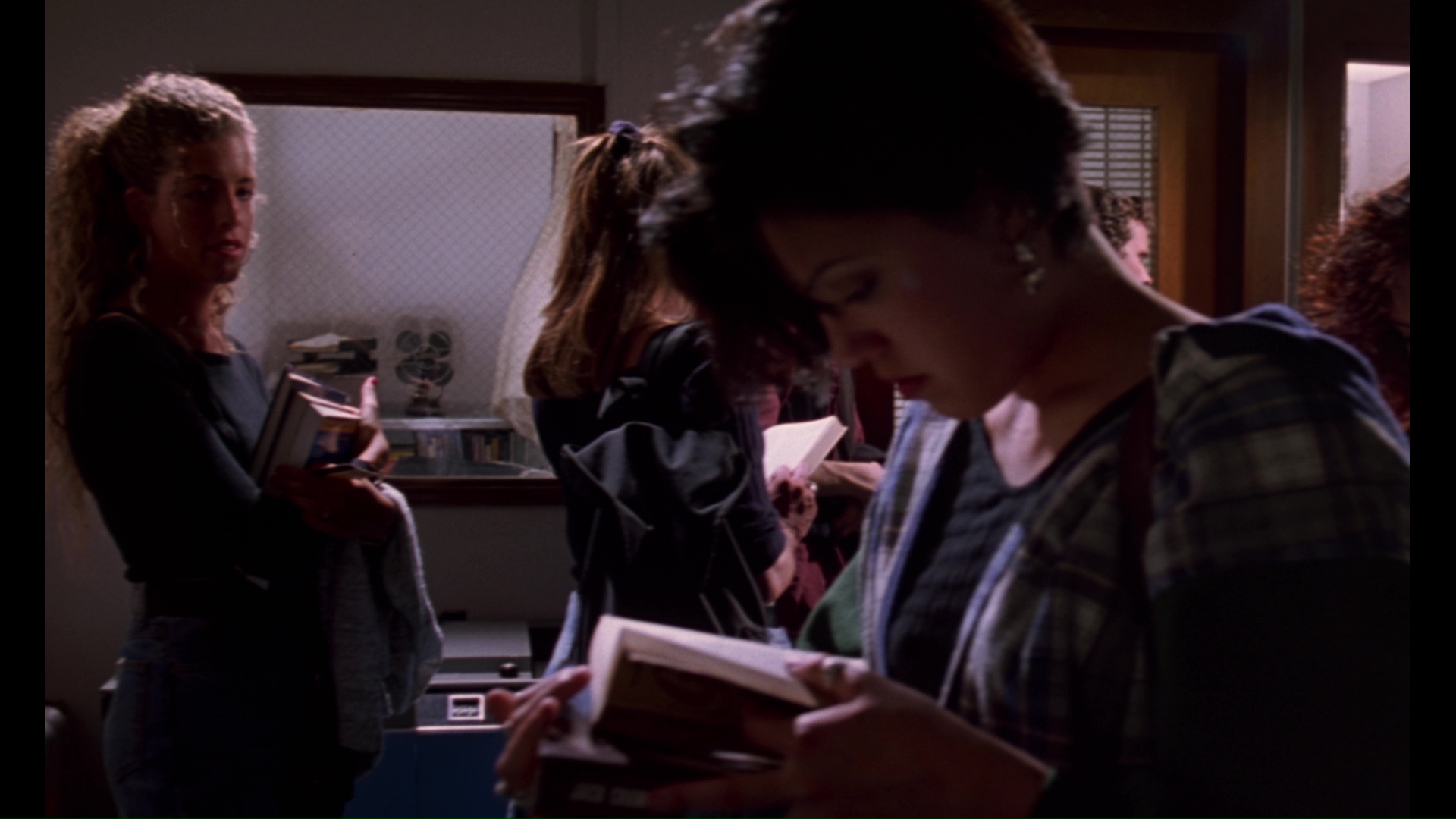 that caught theatrical audiences off guard before and during its Broadway run, the two-character Oleanna was bound to outrage from the start as it arrived in 1992 during intense discussions about workplace harassment and the ramifications of the infamous Clarence Thomas confirmation hearings. The controversy over the production led to a speedy theatrical version, adapted and directed by creator David Mamet, with a later stage revival to follow with Bill Pullman and Julia Stiles. None of those quite captured the same lightning in a bottle quality of the initial run, but the faithful film adaptation remains a valuable preservation of two intense performances and an effective way of experiencing one of Mamet's most incendiary works.
that caught theatrical audiences off guard before and during its Broadway run, the two-character Oleanna was bound to outrage from the start as it arrived in 1992 during intense discussions about workplace harassment and the ramifications of the infamous Clarence Thomas confirmation hearings. The controversy over the production led to a speedy theatrical version, adapted and directed by creator David Mamet, with a later stage revival to follow with Bill Pullman and Julia Stiles. None of those quite captured the same lightning in a bottle quality of the initial run, but the faithful film adaptation remains a valuable preservation of two intense performances and an effective way of experiencing one of Mamet's most incendiary works.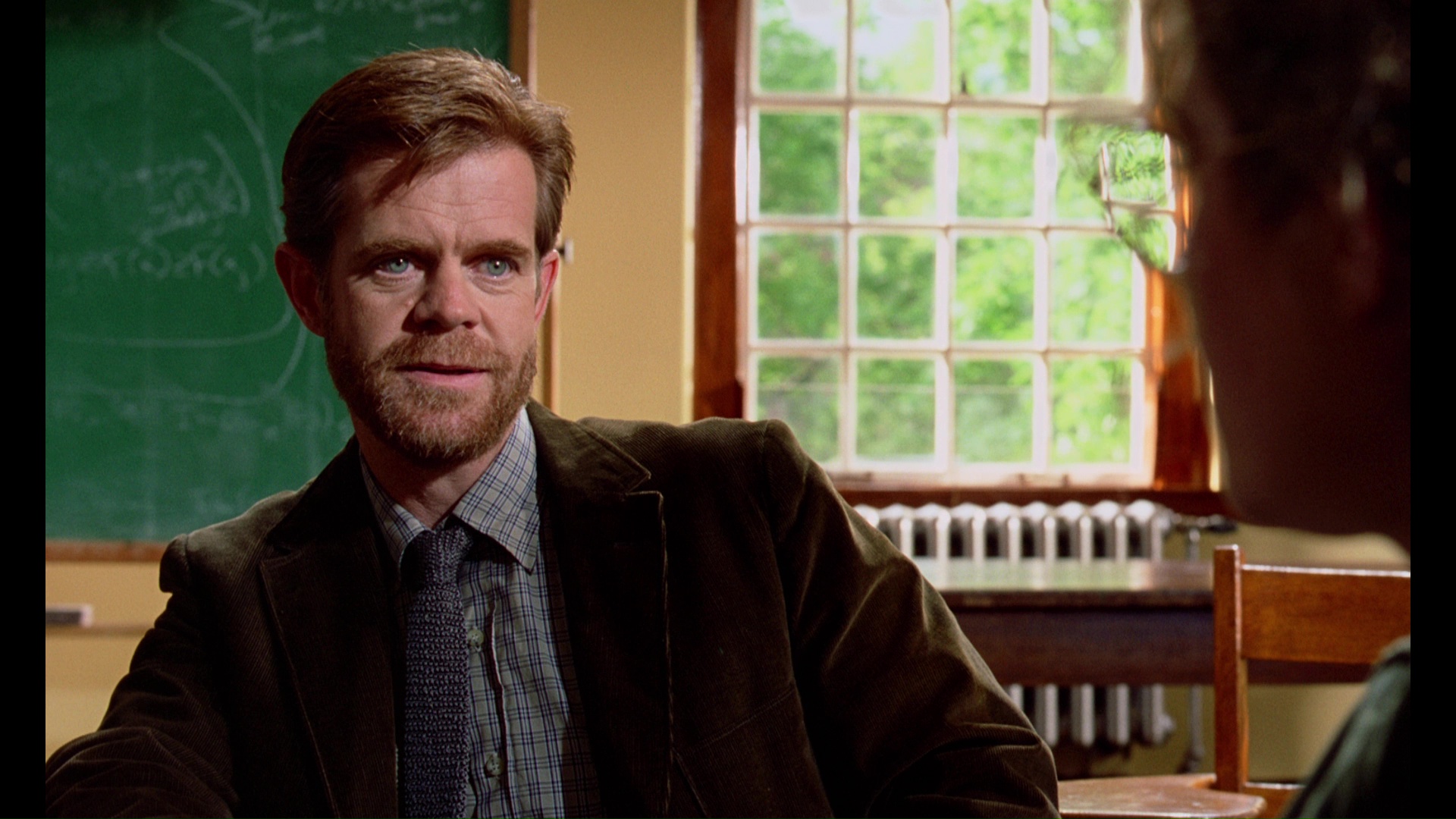 There's obviously nothing inherently cinematic in the source material about two characters engaged in a deeply destructive battle of wills, and Mamet
There's obviously nothing inherently cinematic in the source material about two characters engaged in a deeply destructive battle of wills, and Mamet 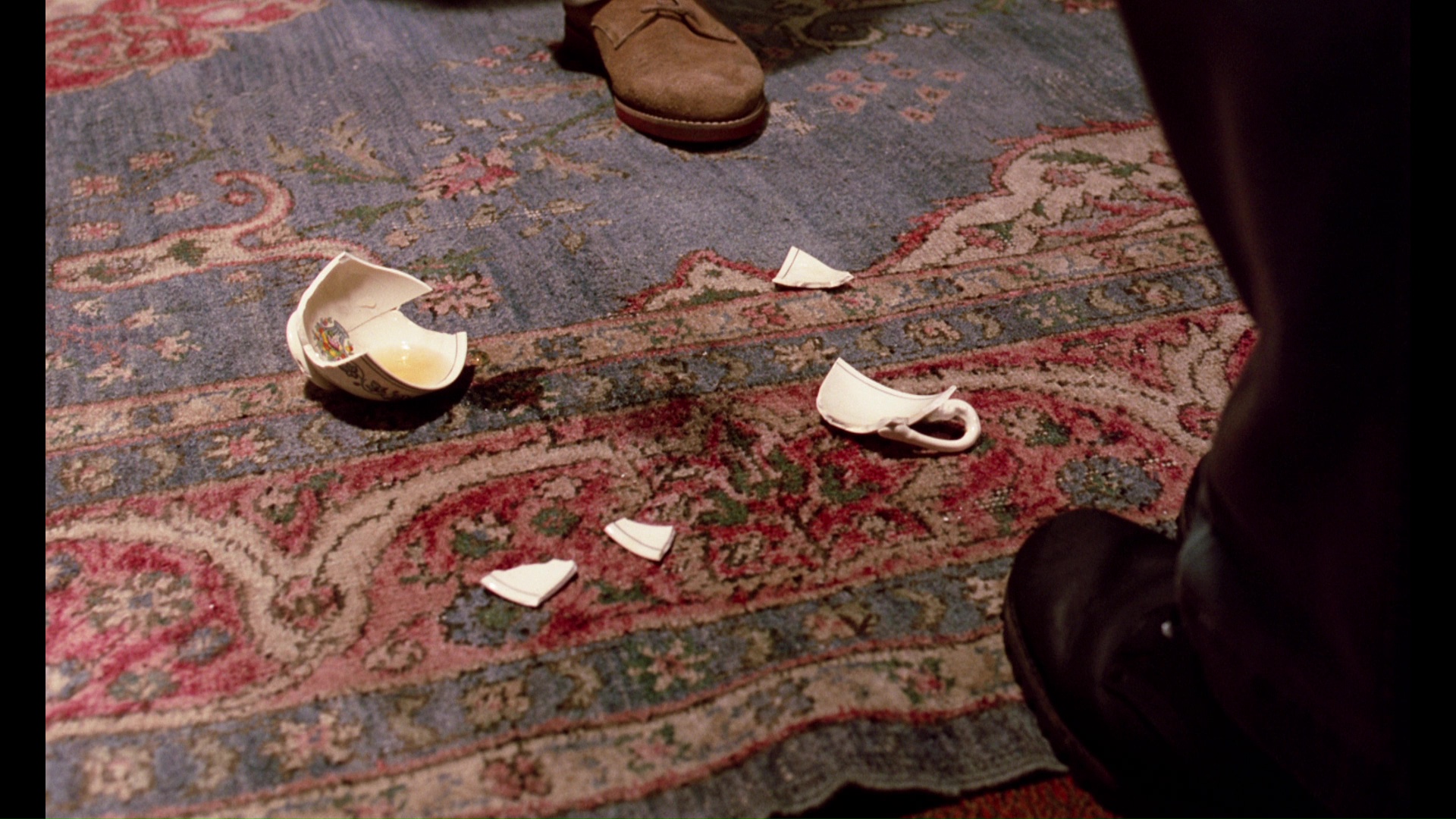 wisely sticks to focusing on the provocative nature of the dialogue itself and the disturbing ramifications it carries as he dissects the more sinister aspects of ego, power, and gender inequality. If that sounds too heady, it really isn't; the film is quite gripping as just a straight-ahead drama, too, and moves along briskly at just under an hour and a half. Both actors are more than up to the task having already honed their performances to perfection on the stage, and if anything, the film feels even more relevant now with the #metoo movement provoking clashes and differences in perception that surpass even the harrowing final act of Mamet's tale.
wisely sticks to focusing on the provocative nature of the dialogue itself and the disturbing ramifications it carries as he dissects the more sinister aspects of ego, power, and gender inequality. If that sounds too heady, it really isn't; the film is quite gripping as just a straight-ahead drama, too, and moves along briskly at just under an hour and a half. Both actors are more than up to the task having already honed their performances to perfection on the stage, and if anything, the film feels even more relevant now with the #metoo movement provoking clashes and differences in perception that surpass even the harrowing final act of Mamet's tale. 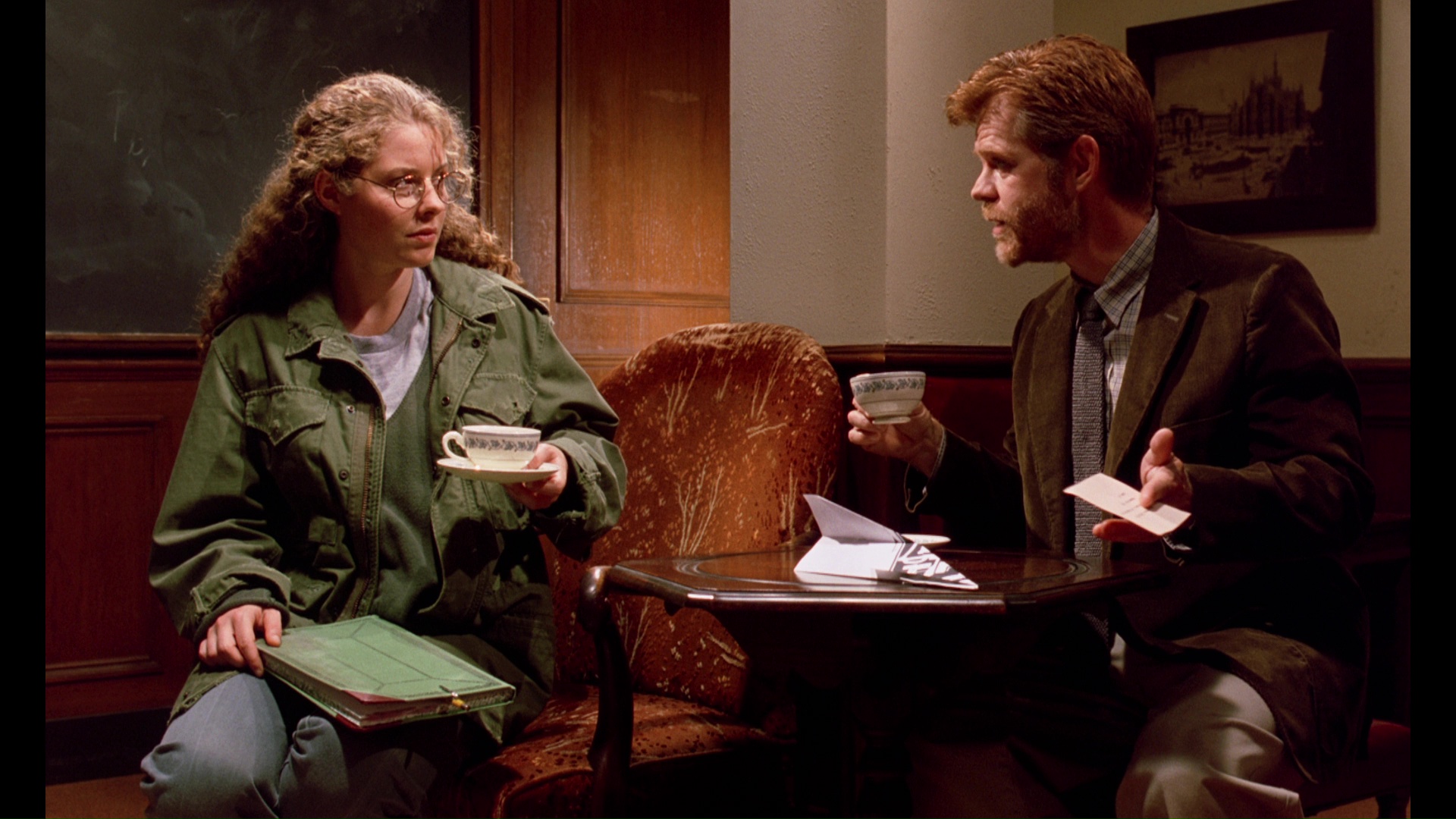 limited 3,000 unit edition), which looks vastly superior in every possible way. The delicate gold and brown color scheme looks much richer and
limited 3,000 unit edition), which looks vastly superior in every possible way. The delicate gold and brown color scheme looks much richer and 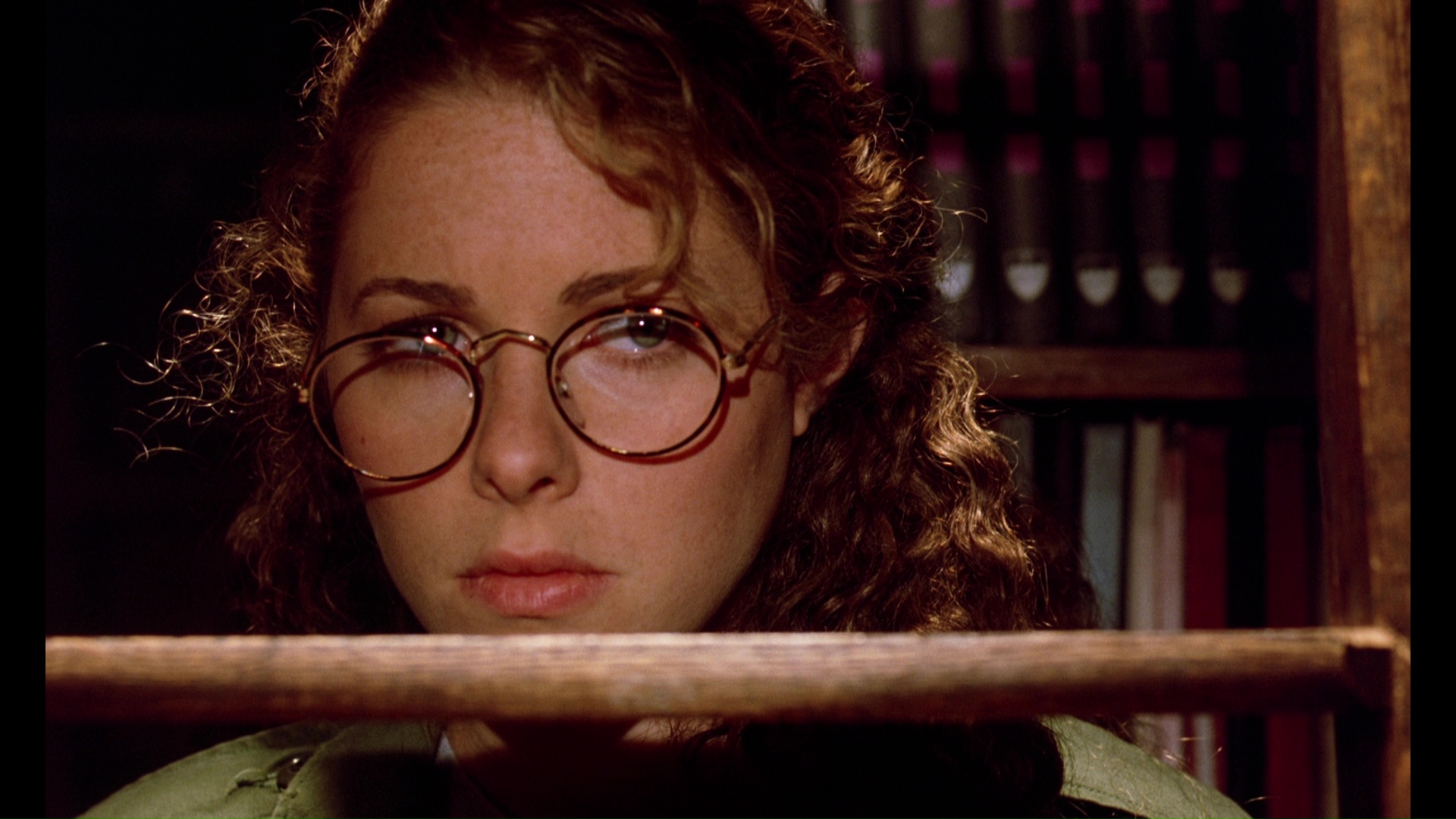 more satisfying here with beautiful gradations of black in the shadowy scenes, and the English LPCM audio sounds clear and fine considering it's 99.9% dialogue. Optional English SDH subtitles are provided, and kudos on that front for taking a very painstaking approach to tackling the careful nuances of the film's cadence and phrasing. Two new featurettes are also included, starting with "Power Play" (17m24s) in which Macy recalls receiving the script and having a very strong reaction to the "dicey territory," doing the play with Rebecca Pidgeon (including a funny memory of who booed them at Harvard-- "and oh, the poor people who went with dates!"), and learning an immense amount from Mamet. Then "The Understudy" (11m9s) features Eisenstadt (now a writer-director) explaining how she dove into acting at a young age, became the understudy in the Mamet play (when Mary McCann took over for Pidgeon, Mamet's real-life wife and composer of the film's closing song), being treated by some people as if she were her character, and using the book Girl, Interrupted as her bible at the time. A trailer and image gallery are also included, and as usual, the substantial insert booklet is a keeper as well with an incisive new Rebecca Nicole Williams essay and additional sections about the play's turbulent reception and highlights from critical reviews during the theatrical release.
more satisfying here with beautiful gradations of black in the shadowy scenes, and the English LPCM audio sounds clear and fine considering it's 99.9% dialogue. Optional English SDH subtitles are provided, and kudos on that front for taking a very painstaking approach to tackling the careful nuances of the film's cadence and phrasing. Two new featurettes are also included, starting with "Power Play" (17m24s) in which Macy recalls receiving the script and having a very strong reaction to the "dicey territory," doing the play with Rebecca Pidgeon (including a funny memory of who booed them at Harvard-- "and oh, the poor people who went with dates!"), and learning an immense amount from Mamet. Then "The Understudy" (11m9s) features Eisenstadt (now a writer-director) explaining how she dove into acting at a young age, became the understudy in the Mamet play (when Mary McCann took over for Pidgeon, Mamet's real-life wife and composer of the film's closing song), being treated by some people as if she were her character, and using the book Girl, Interrupted as her bible at the time. A trailer and image gallery are also included, and as usual, the substantial insert booklet is a keeper as well with an incisive new Rebecca Nicole Williams essay and additional sections about the play's turbulent reception and highlights from critical reviews during the theatrical release. ![]() -*******************
-*******************